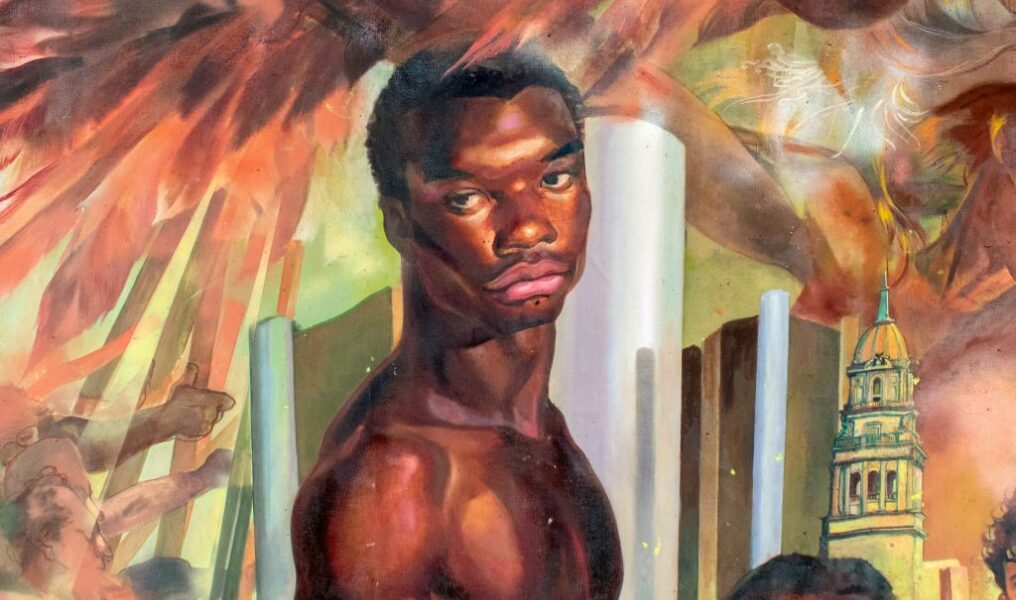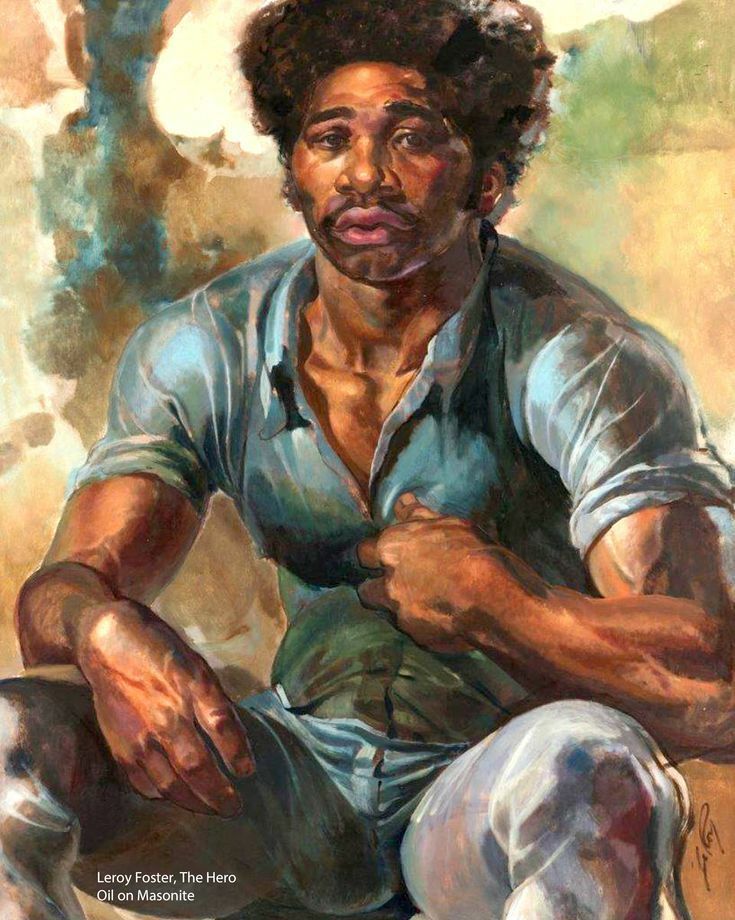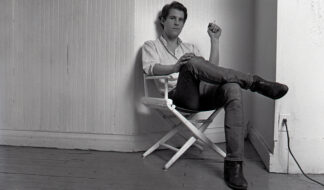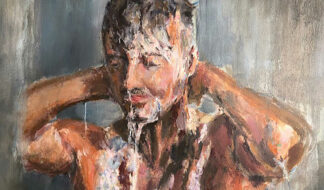The Black, Gay ‘Michelangelo of Detroit’ Finally Gets His Own Show
Out before the Civil Rights Era, LeRoy Foster created a mural that Detroiters see every day

Somehow, the late LeRoy Foster, an artist often referred to as the “Michelangelo of Detroit,” has never been featured in a major art show. We can’t be sure if the oversight is because the painter, perhaps best known for his iconic, larger-than-life mural “Life and Times of Frederick Douglass,” on view at the Douglass Branch of the Detroit Public Library, was an unapologetically out, gay, Black man long before the Civil Rights era. But soon, Foster’s life and his work will take center stage at an upcoming Cranbrook Art Museum show.
LeRoy Foster: Solo Show will be on display at the Bloomfield Hills museum from Oct. 28 through March 3, 2024. “Foster’s artistic vision did not fit with the art world’s expectations and trends during his lifetime, which left him without representation and also without historic scholarship about his work and practice,” says Chief Curator Laura Mott in a news release about the exhibit. “We have diligently tracked down many of his works, from museums to private collections, and restored others in order to put together the first exhibition that shines a light on this important Detroit artist.”
The exhibition will offer visitors the first opportunity to see Foster's mural "Renaissance City" in public since it was removed from the old Cass Technical High School in 2005 (Foster graduated from the school in 1943). The mural was rescued from the building before it was demolished and passed into storage, where Mott and Detroit artist Mario Moore uncovered it. The City of Detroit is working to restore the mural, which will be passed along to the new Cass Tech building for permanent display.

As Foster established himself as an artist, he was championed by several revered Detroit cultural trailblazers, including queer activist Ruth Ellis, artist Charles McGhee and philanthropist Charles Wright. Among his other contemporaries was the late Pride Source columnist and beloved local artist Charles Alexander, who wrote about an encounter with Foster in a 2019 “Parting Glances” column. “I met LeRoy when I was 19 in 1955 and, sadly, by chance, during the last years of his life in 1992,” Alexander wrote. “In the '50s, LeRoy Foster's studio was located in an upper flat on Woodward Avenue in Midtown Detroit. His studio was a few blocks from the famed Paradise Theater that brought top black musicians, bands and singers to Detroit. My friend Jack Jacobs, who was a longtime friend of Foster's, invited me to attend LeRoy's 30th birthday studio party.”
Alexander described the party and his conversation with Foster, which focused on their shared Cass Tech teachers. He painted a scene that likely resembled many of the functions Foster attended during that era. “As I recall, LeRoy's birthday celebration was filled with a diverse group of artists, musicians, and two very hefty twin sisters who sang along with an LP recording of Ella Fitzgerald songs,” adding, “LeRoy was very outgoing and physically in superb shape. He looked not unlike his famous painting — and perhaps masterpiece — of Frederick Douglass.”
In his column, Alexander mentioned a place where those in the know can still find a small remnant left behind by the painter, who died in 1993 — his signature on a wall at the Scarab Club, a place where, he wrote, Foster is “highly honored as a masterful painter, two-spirited power and proud Detroit gay artist of national and international reputation.”










